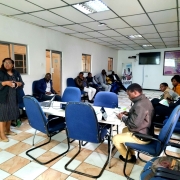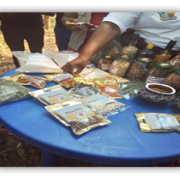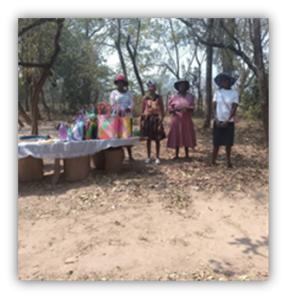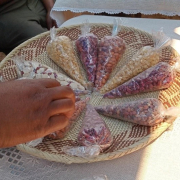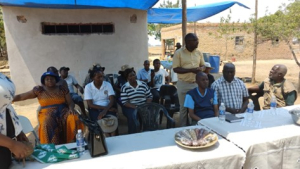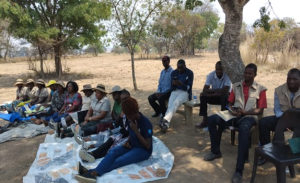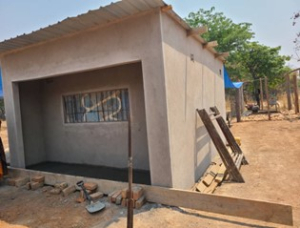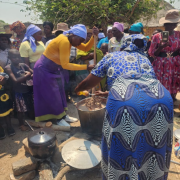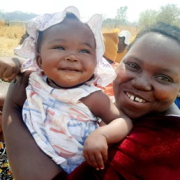District Food and Nutrition Security Committees (DFNSCs) form the nucleus for tackling food and nutrition security in a coordinated and holistic manner, with specific core functions. They lead the coordination of food and nutrition security activities at the sub-national level by providing a platform for interaction among relevant Government ministry representatives, development partners, academia and civil society. In this collaborative framework all stakeholders are accountable for ensuring that their sectors meaningfully engage and contribute to improving food and nutrition security at all their levels of operation within the identified national priorities.
The Food and Nutrition Council (FNC) recently conducted trainings to enhance the capacity of District Food and Nutrition Security Committee (DFNSC) members. The trainings, which were conducted in nine districts (Mutare, Kariba, Bubi, Bulilima, Chivi, Mwenezi, Mbire, Mt Darwin and Harare) specifically focused on Early Childhood Development (ECD), equipping members to oversee the delivery of strategies for promoting optimal nutrition and development in early childhood through Care Groups. It also provided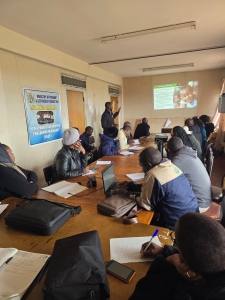 participants with the knowledge and skills needed to understand a multi-systems approach to addressing all forms of malnutrition and to effectively monitor and support interventions in their districts.
participants with the knowledge and skills needed to understand a multi-systems approach to addressing all forms of malnutrition and to effectively monitor and support interventions in their districts.
Why Early Childhood Development Matters
Early Childhood Development isn’t just a phase; it’s the foundation of a child’s life. Spanning from conception to age eight, Early Childhood Development covers a child’s physical, cognitive , social and emotional growth. Neuroscientific studies show that 80% of a child’s brain is formed by age three, making early experiences, proper nutrition and a safe nurturing environment important for healthy development.
The trainings emphasised that nutrition is a cornerstone of Early Childhood Development. The consequences of poor nutrition during these formative years can lead to impaired brain development and lifelong health and cognitive challenges. One of the most visible signs is stunting, a form of chronic malnutrition that prevents a child from growing to their expected height.
The Guiding Framework for Nurturing Care
To guide their efforts, District Food and Nutrition Security Committee members were introduced to the Nurturing Care Framework, a holistic model designed to support a child’s development. This framework is built on five interconnected pillars:
- Good Health: Ensuring access to essential healthcare, vaccinations and regular check-ups.
- Adequate Nutrition: Promoting balanced diets and proper infant and young child feeding practices.
- Responsive Caregiving: Fostering positive interactions and secure attachments to support a child’s emotional and social development.
- Security and Safety: Creating a protected and stress-free environment.
- Opportunities for Early Learning: Providing opportunities for cognitive stimulation through play-based activities.
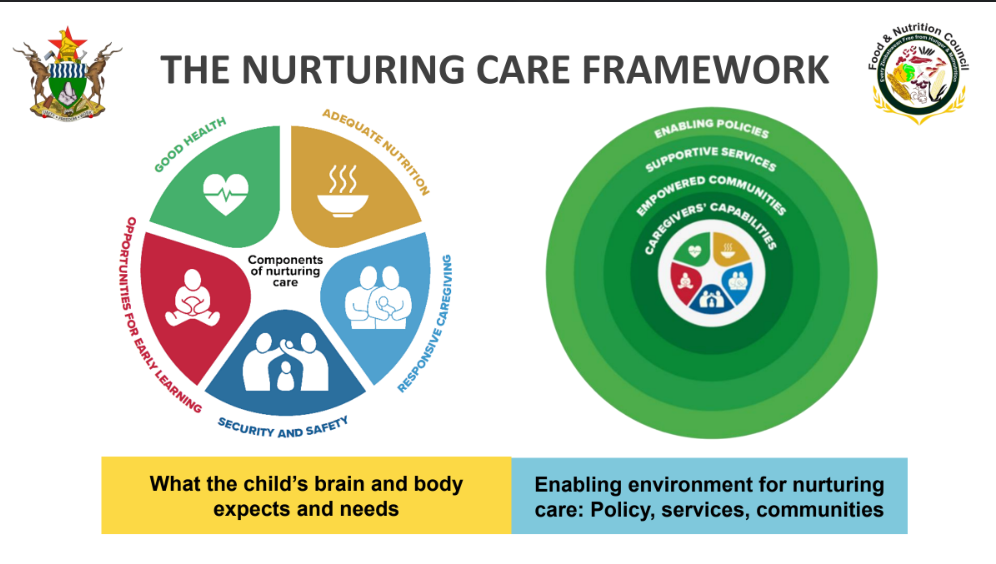
By focusing on these pillars and leveraging existing structures like Care Groups, FNC has capacitated District Food and Nutrition Security Committee members with the tools and knowledge to effectively implement and monitor Early Childhood Development initiatives in their districts. The way forward is for the District Food and Nutrition Security Committees to apply their new knowledge to achieve sustainable development through community ownership of these initiatives. A well-executed Early Childhood Development programme which prioritises optimal nutrition from the earliest stages of life, will not only improve children’s health and development but will also lead to enhanced productivity and a more prosperous future for the nation.

